Conwell grad Councilmember Isaiah Thomas opposes middle school's closure
A key member of the Philadelphia City Council has already expressed opposition to parts of the district’s plan to close, relocate, and co-locate several schools.

This letter was written by Tuesday Chalmers and Kayla Hoskinson for Kensington-area libraries. Chalmers and Hoskinson are library workers and union members of AFSCME DC 47.
Public libraries should be safe havens in our communities: comfortable and accessible to everyone, where people can expect to easily access services and resources. Every community deserves a free place to gather that is clean and safe, with modern technology and resources to help them apply for jobs, get homework help after school, or simply hang out and explore new hobbies.
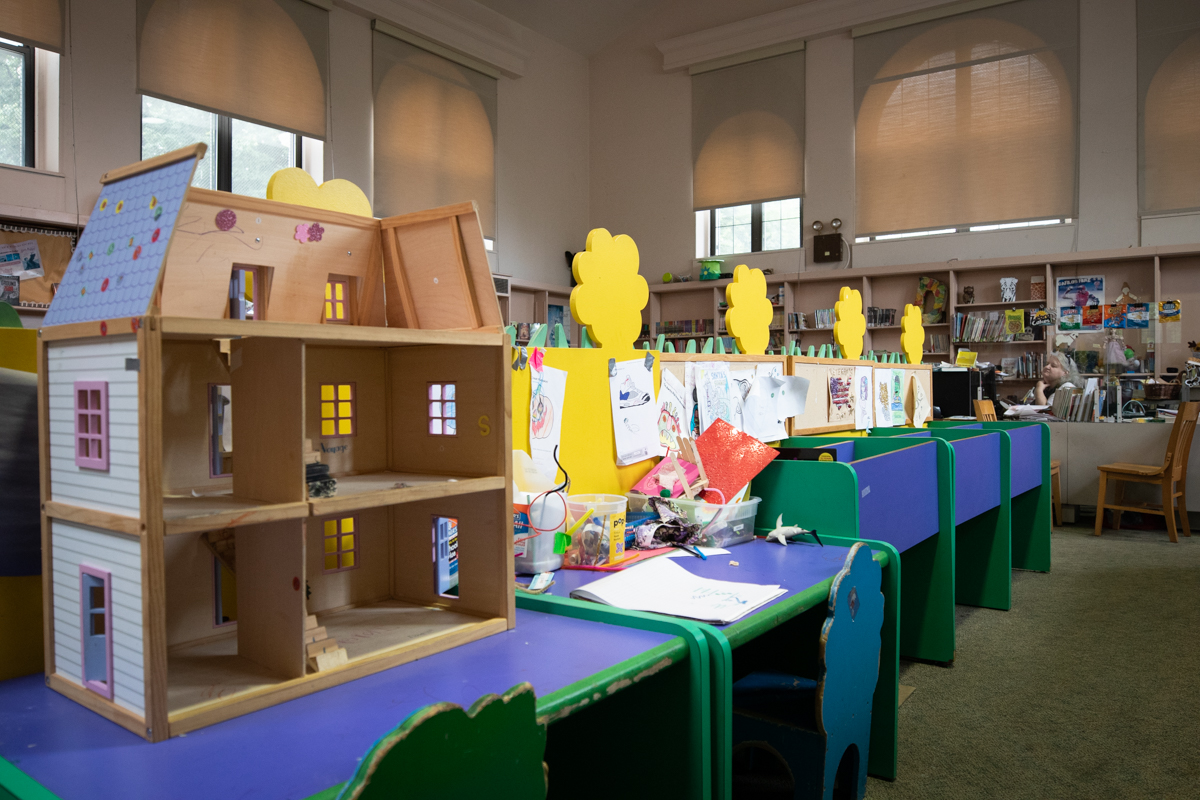
But in Kensington, systemic racial and economic disparities map onto our public spaces: libraries and recreation centers. In crumbling buildings with outdated technology, low staffing, and few social services, we are unable to live up to the standard our neighbors deserve. The $10 million increase in library funding proposed by Mayor Kenney and an additional $2.6 million that just passed in City Council is a step in the right direction, but it falls short of what we need to truly provide accessible, safe spaces, and high-quality services in our communities. The Friends of the Free Library campaign to increase the library’s budget by $30 million was the floor, not the ceiling. And across this city, we need to see a commitment to equitable funding of our neighborhood services and public spaces to improve the lives of residents.
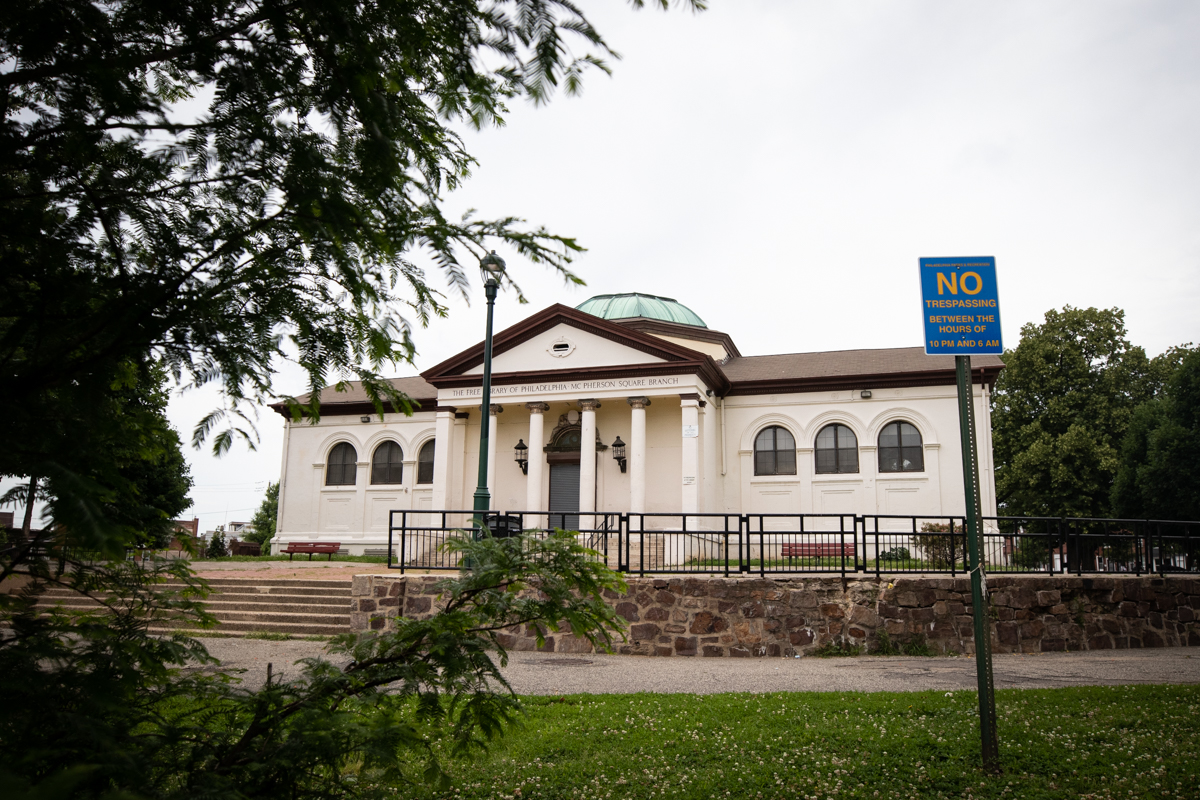
At many of our branches, the years-long disinvestment from the City is apparent outside and in. Access to free, clean, outdoor space is more important than ever, but many of our library lawns around Kensington are not sanitary nor suitable for outdoor programs. The library has been left without the resources to properly care for these spaces, which are often overgrown and hazardous. At the Kensington Library, even the sidewalk is blocked almost daily by illegally parked vehicles. The contrast is stark compared to other parts of the city.
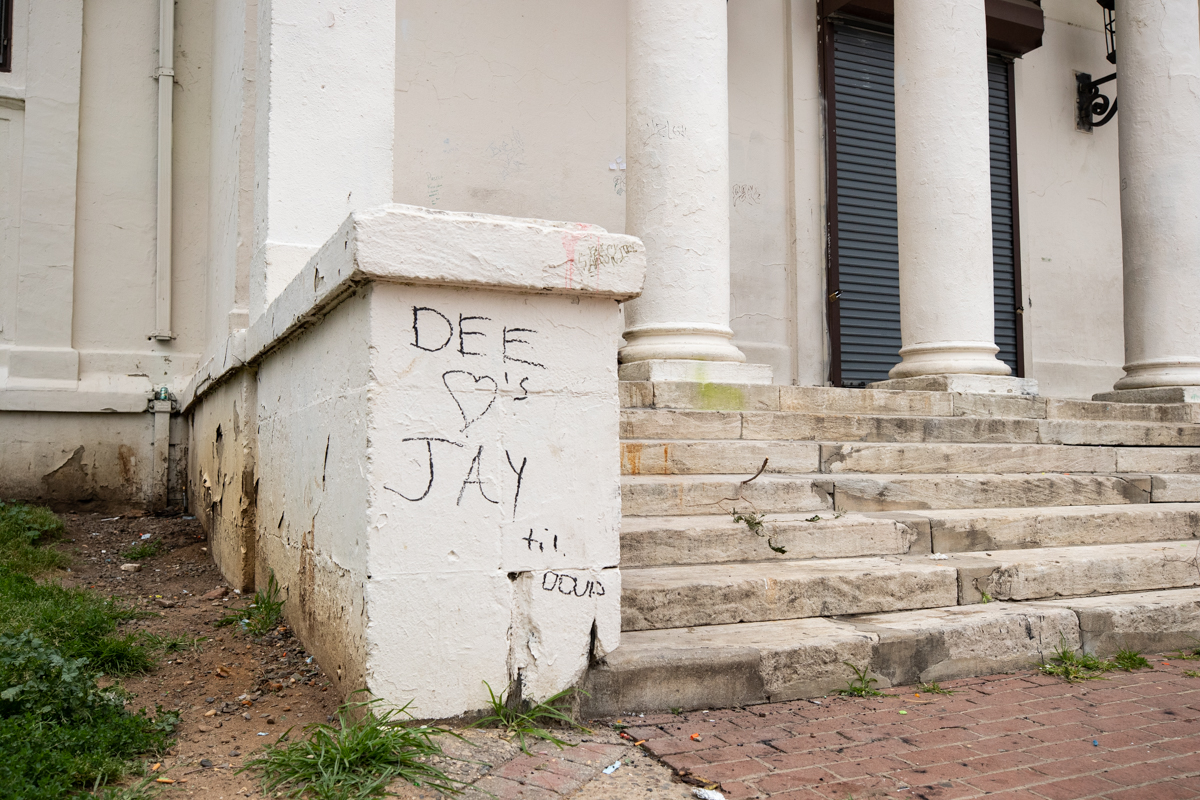
Inside our buildings, we struggle to meet the technological needs of our patrons seeking job assistance, homework help, online education, and even simple printing. The pandemic has highlighted the digital divide in our city, and libraries should be better equipped to meaningfully fill that gap, but even our designated 21st Century Libraries like Lillian Marrero Library are stocked with old machines that cannot perform the most basic functions our patrons expect. Other locations, like McPherson Square Library, only have six computers. Access to printing removes barriers for many Philadelphians, but libraries also struggle with printers that break down. In contrast, our patrons consistently ask for and rightfully expect simpler, updated wireless printing that we cannot provide.
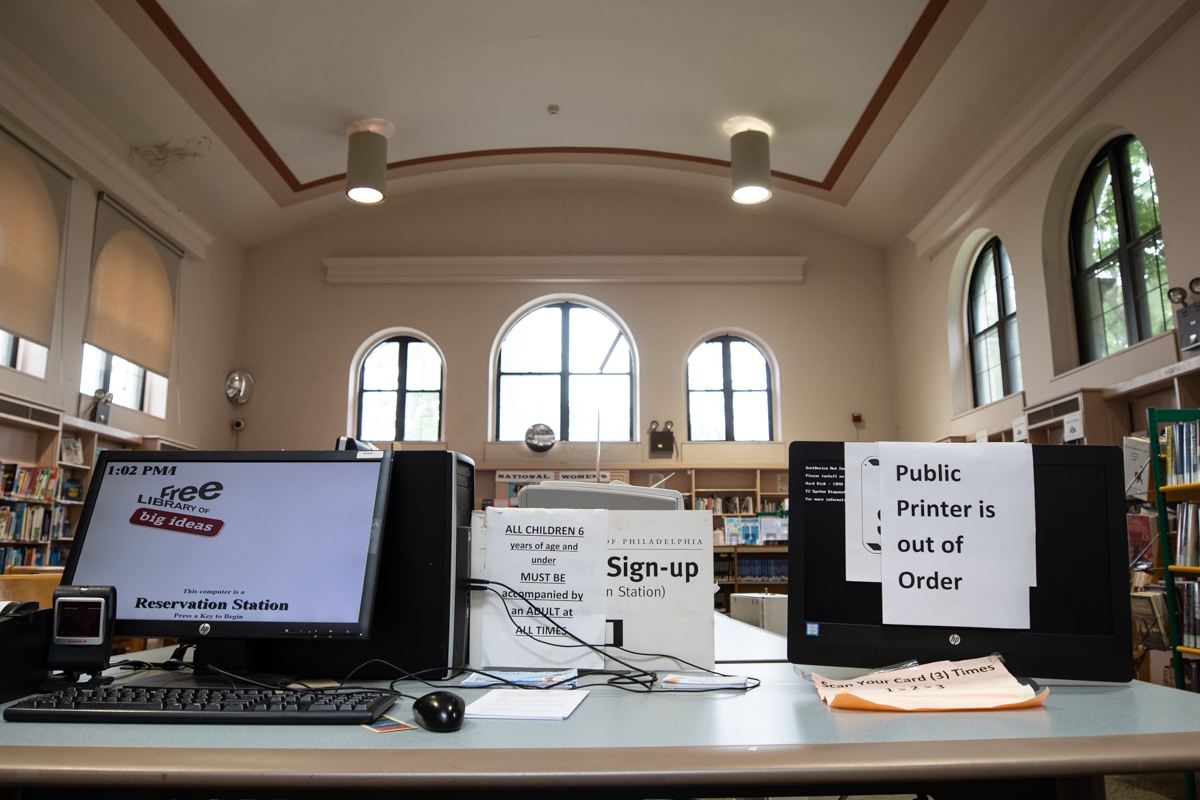
According to the Office of Homeless Services, there are 5,700 people experiencing homelessness in Philadelphia, which seems like a small percentage of Philadelphia’s population. However, neighborhoods like ours are more prone to encounter housing insecurity on a daily basis, and librarians often step into the role of social workers with little training or resources to support that essential work. Patrons are often dealing with issues such as homelessness, unemployment, poverty, and drug addiction. In turn, librarians are helping people find jobs and access to social services, serving meals, referring patrons to shelters, and administering Narcan. Additional staffing, including social workers, is necessary to meet all these needs. The Free Library of Philadelphia typically employs two social workers at Parkway Central Library, which is not nearly enough to serve all 54 libraries across the city. (The Kensington Branch has started a pilot relationship with West Chester University that places social work students as interns at the branch, but the pandemic has constrained this effort.) Without these needed resources and staff members, how can we serve our vulnerable patrons? How do we educate and support our library staff?
Read more: McPherson Square is the last lifeline of my hurting neighborhood. It’s time it gets more funding.
Free, accessible, Out of School Time (OST) and youth employment options are vital aspects of anti-violence efforts, as City officials have repeatedly emphasized. Services like these help support families and provide alternatives to more high-risk behaviors from our children and teens. Our after-school program, LEAP, is a free, drop-in space at branches across the city that encourages creativity, collaboration, and self-directed interests for students; the After School Leaders and Teen Leadership Assistants (yes, paid positions for teens!) provide literacy support, STEAM activities, and homework help every afternoon. At McPherson Square, workers often partner with our colleagues at Parks & Recreation, a crucial collaboration that helps reach more LEAP participants. However, LEAP was destabilized in 2020 when hundreds of After School Leaders were laid off, and the program now struggles to attract applicants. Working for the Free Library should be the best first job experience for young teens, and we must make this a reality by offering higher wages and better benefits for the Teen Leadership Assistants and After School Leaders who have been the backbone of this program for years. In order to truly advance anti-violence measures across Philadelphia, the City must prioritize permanent funding and staffing for this program.
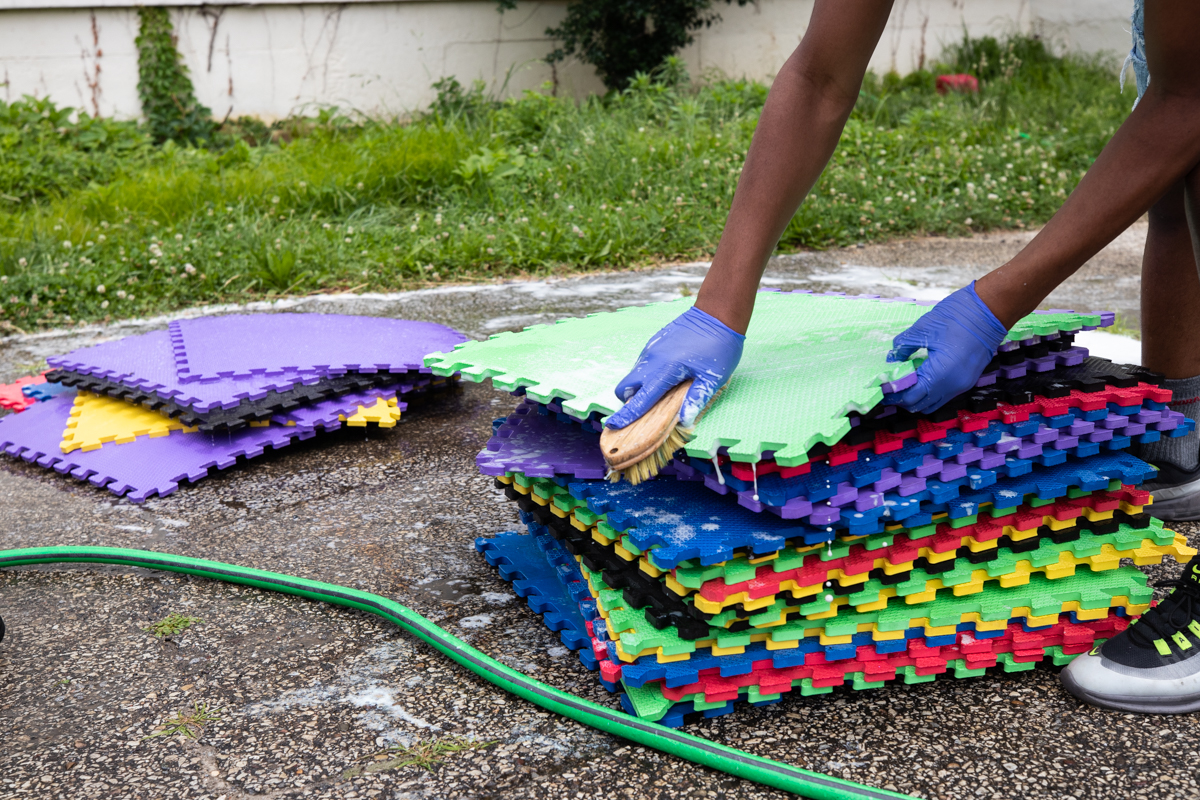
Even without the resources we need, library workers strive to meet our communities’ needs. North Philadelphia libraries partner with Philadelphia Legal Assistance for help with evictions, family law, and tax issues. Workers are collaborating to create “comfort cabinets” stocked with basic hygiene essentials. At the beginning of 2022, the Free Library distributed more than 11,000 free hotspots and tablets to Philadelphians; these will provide free wireless internet until November of this year. But the City cannot continue to neglect basic upkeep, technology advancements, staffing priorities, and popular services. Safety and healing in Philadelphia begin with fully-funded public services and spaces like ours.
Editors: Siani Colón, Zari Tarazona / Designer: Siani Colón
Kensington Voice is one of more than 20 news organizations producing Broke in Philly, a collaborative reporting project on economic mobility. Read more at brokeinphilly.org or follow on Twitter at @BrokeInPhilly.
Free accountability journalism, community news, & local resources delivered weekly to your inbox.